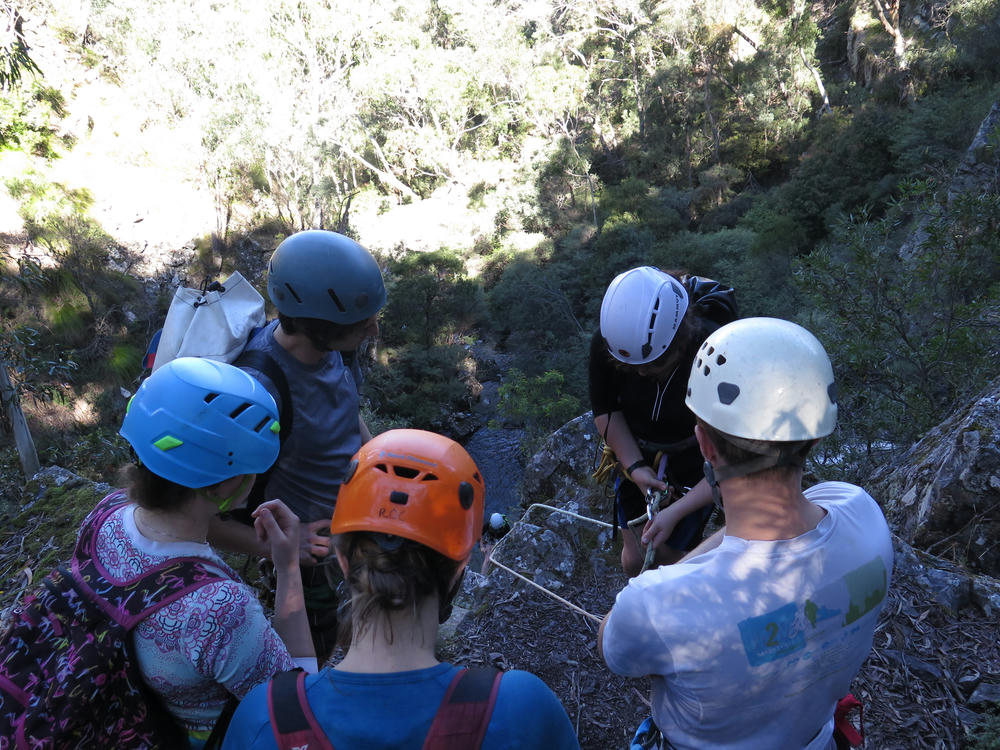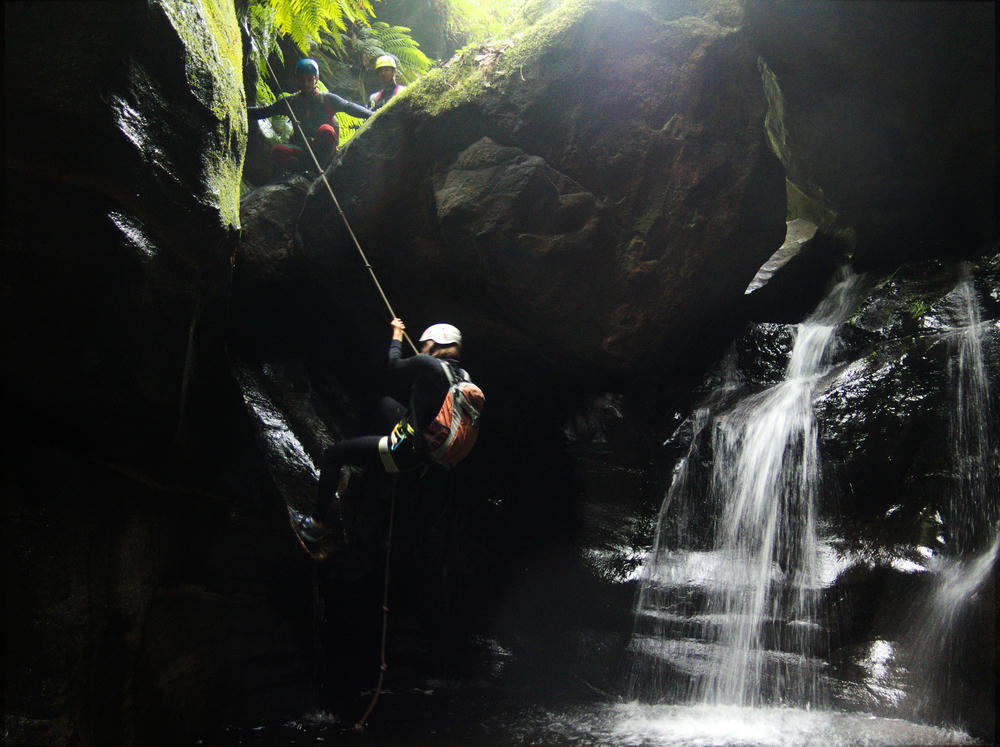We tell ourselves (and our friends and families) that our adventure sport of choice can be safe, you shouldn't get hurt if you do the right thing; that person who had an accident must have been doing something wrong or was unlucky. We've convinced ourselves that it's safe enough for us to be comfortable participating, and when some evidence comes up to the contrary, we may seek to disprove or minimise it so we can feel better about our own selfish choices regarding risk taking.
This week I was struck by the sad news of the death of promising young female climber Savannah Buik and the conversation surrounding it. What happens when we try to reconcile the risk in our pursuits when faced with horrifying news such as this? It makes me think about all my friends and acquaintences who have suffered accidents, bad luck, and near misses in the outdoors. It makes me think about all those articles about people who made "silly" mistakes and got themselves killed.
There is a line we must tread between trying to identify mistakes and criticising them in the name of progress/improvement, but also being empathetic and respectful towards the person who had the accident, accepting that we ourselves can be exposed to the same risks and are capable of making the same kinds of mistakes.
Over the years I've overheard or even participated several discussions which take an overly critical tone. I've often left feeling guilty. The person in question often has an idea that people are gossiping about their accident. They may feel excluded from the conversation, and feel that other people look down upon them. Damage is certainly done.
To add to this is our impression that perhaps sharing personal stories of our poor decisions (especially those near misses) publicly damages our reputation and the reputation of our clubs/companies/communities, making us appear reckless and dagerous. It might make others question our personal suitability for taking on leadership responsibilities?

Of course, unfortunately, considerations for admission of guilt and culpability in the context of litigation increasingly plays a part in a number of accident scenarios in our societies, but I would like to argue that these considerations when applied liberally are also toxic to a healthy safety culture.
I don't speak for my club on this, but I personally believe it is far better that we as a club and as individual members of our respective communities strive have a reputation of being open, honest, and willing to learn from our mistakes. Other clubs and experienced adventurers may have a good looking public safety record, but I can guarantee that they probably have had many problems, accidents and near misses which go unreported, and undiscussed.
Yes it's important that we try to discourage out of place bravado, poor technique and poorly thought out decisions regarding risk. But I think we often aren't giving people enough credit and encouragement to come to this conclusion themselves. Who better to criticise and share details about an accident or a near miss than the person who was themselves involved?
If you know someone who has had an accident or a near miss, before launching into criticising/reporting their mistakes behind their backs consider doing this first instead: talk to them about it if they are willing. Be empathetic, be very careful to avoid implying judgement. They may feel shame, or they may not even realise the full extent of their mistake, which may be why they have not told you about it of their own accord. Build up a rapport with them on the subject, ask careful questions and help them to to feel comfortable identifying and sharing their own mistakes with others. It may even be that you are not the best person to do approach them, perhaps they will be more comfortable talking to another friend, so delegate this responsibility!
To open the proceedings, a story about one of my own near misses, a couple of weekends ago I was in a canyon with some friends:
We were approaching the end of the difficult sections and nearing the end of the canyon, everyone was euphoric with the beauty of the surroundings. The final obstacle to negotiate was a hand-over-hand fixed line down into a pool of water. perhaps 5m below. I was feeling cocky, confident and happy, I knew that this was going to be easy for me. I was also the last person in the group and there was a friend watching out for me while the others walked on ahead.

As I neared the top of the drop, I jumped up onto the edge and slipped onto my bum. It was a 50/50 chance whether I would fall down, but thankfully I did not. While the direct consequences of failure were not dire (the pool was fairly deep), it still would have been very possible for me to injure myself had I fallen, and extracting an injured person from a canyon is sure to be a nightmare.
I should not have let my guard down, the trip is not over until you're back sitting at home. I'm very thankful that my friend was watching out for me should I have fallen and incapacitated myself in the deep water and began to drown. This is the often unspoken and seemingly obvious policy while on outdoor trips with friends, watching out for each other, up to the very last person, at each obstacle. Never more clearly did the value of this policy make itself known to me.
If you've had a personal accident or a near miss you'd like to share, consider writing about it, and sharing it with your friends, and perhaps the world at large. Besides helping yourself process what's happened, you never know how you may be helping to improve the experience of others in the outdoors.